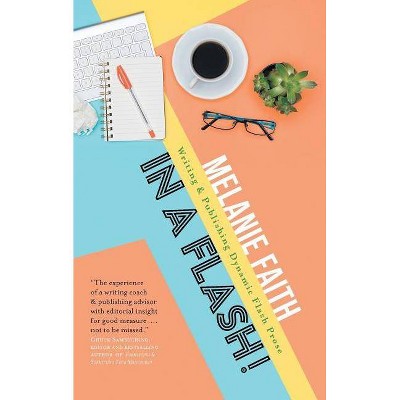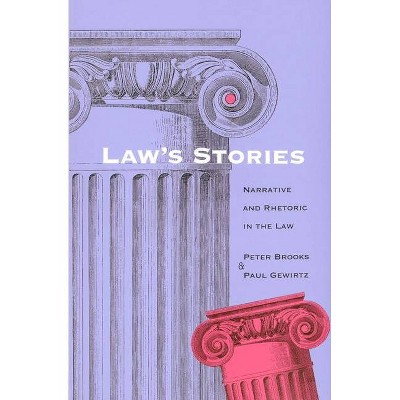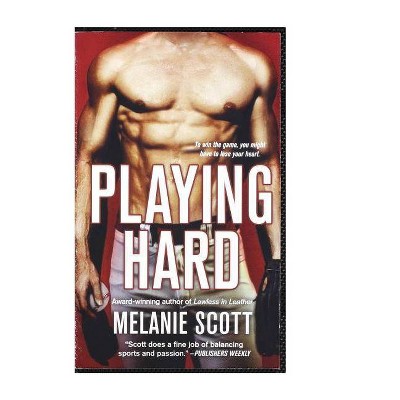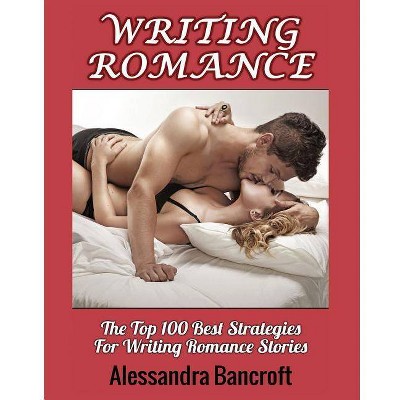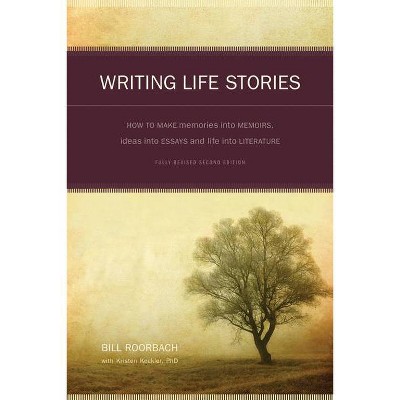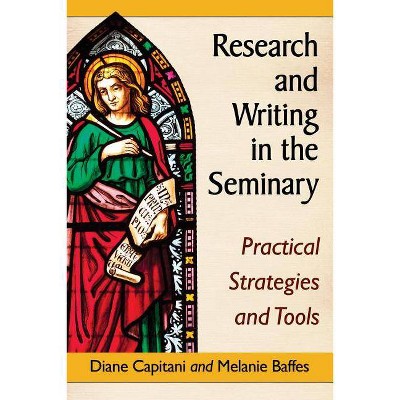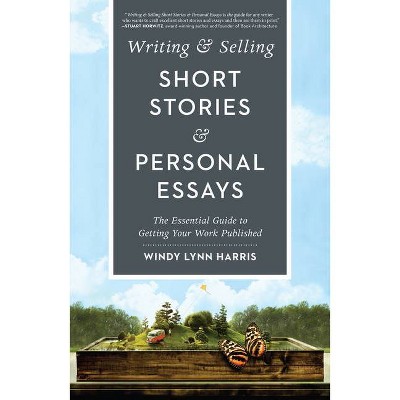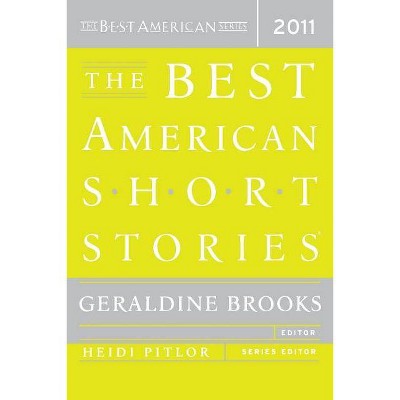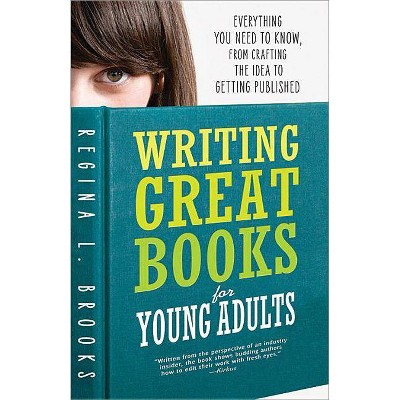Writing Hard Stories - by Melanie Brooks (Paperback)
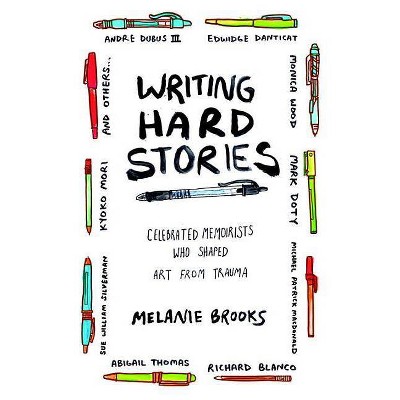
Similar Products
Products of same category from the store
AllProduct info
<p/><br></br><p><b> About the Book </b></p></br></br>"Acclaimed memoirists describe the process of writing their most painful memories In her attempt to write a memoir about her father's death from a secret AIDS infection in 1985, Melanie Brooks was left with some painful questions: What does it take to write an honest memoir? And what happens to us when we embark on that journey? Would she manage it? Brooks sought guidance from the memoirists who most moved her--including Andre Dubus III, Joan Wickersham, Mark Doty, Marianne Leone, Richard Hoffman, Edwidge Danticat, Michael Patrick MacDonald, Richard Blanco, Abigail Thomas, Sue Silverman, Kate Bornstein, Jerald Walker, and Kyoko Mori--to answer these questions. Writing Hard Stories encourages all writers as they work through their challenging stories. It features some of the country's most admired writers discussing their treks through dark memories and breakthrough moments, and it demonstrates the healing power of putting words to experience. A unique compilation of authentic stories about the death of a partner, parent, or child; about violence and shunning; and about the process of writing, the book will serve as a tool for teachers of writing and give readers an intimate look into the lives of the authors they love"--<p/><br></br><p><b> Book Synopsis </b></p></br></br><b>Some of the country's most admired authors--including Andre Dubus III, Mark Doty, Marianne Leone, Michael Patrick MacDonald, Richard Blanco, Abigail Thomas, Kate Bornstein, Jerald Walker, and Kyoko Mori--describe their treks through dark memories and breakthrough moments and attest to the healing power of putting words to experience. <br></b><br>What does it take to write an honest memoir? And what happens to us when we embark on that journey? Melanie Brooks sought guidance from the memoirists who most moved her to answer these questions. Called an essential book for creative writers by <i>Poets & Writers</i>, <i>Writing Hard Stories</i> is a unique compilation of authentic stories about the death of a partner, parent, or child; about violence and shunning; and about the process of writing. It will serve as a tool for teachers of writing and give readers an intimate look into the lives of the authors they love. <p/><b>Authors profiled in <i>Writing Hard Stories</i> </b>Andre Dubus III, Sue William Silverman, Michael Patrick MacDonald, Joan Wickersham, Kyoko Mori, Richard Hoffman, Suzanne Strempek Shea, Abigail Thomas, Monica Wood, Mark Doty, Edwidge Dantict, Marianne Leone, Jerald Walker, Kate Bornstein, Jessica Handler, Richard Blanco, Alysia Abbott, and Kim Stafford <p/><b>Insights from <i>Writing Hard Stories</i></b> <p/>"Why we endeavor collectively to write a book or paint a canvas or write a symphony...is to understand who we are as human beings, and it's that shared knowledge that somehow helps us to survive."--Richard Blanco <p/>"Here's what you need to understand: your brothers [or family or friends] are going to have their own stories to tell. You don't have to tell the <i>family</i> story. You have to tell <i>your</i> story of being in that family."--Andre Dubus III <p/>"We all need a way to express or make something out of experiences that otherwise have no meaning. If what you want is clarity and meaning, you have to break the secrets over your knee and make something of those ingredients."--Abigail Thomas <p/>"What we remember and how we remember it really tells us how we became who we became."--Michael Patrick MacDonald <p/>"The reason I write memoir is to be able to see the experience itself...I hardly know what I think until I write...Writing is a way to organize your life, give it a frame, give it a structure, so that you can really see what it was that happened."--Sue William Silverman <p/>"After a while in the process, you have some distance and you start thinking of it as <i>a</i> story, not as <i>your</i> story...It was a personal grief, but no longer personal...[It's] something that has not just happened to me and my family, but something that's happened in the world."--Edwidge Danticat <p/>"Tibetan Buddhists believe that eloquence is the telling of a truth in such a way that it eases suffering...The more suffering that is eased by your telling of the truth, the more eloquent you are. That's all you can really hope for--being eloquent in that fashion. All you have to do is respond to your story honestly, and that's the ideal."--Kate Bornstein <p/>"You can never entirely redeem the experience. You can't make it not hurt anymore. But you can make it beautiful enough so that there's something to balance it in the other scale. And if you understand that word <i>beautiful</i> as not necessarily <i>pretty</i>, then you're getting close to recognizing the integrative power of restoring the balance, which is restoring the truth."--Richard Hoffman<p/><br></br><p><b> Review Quotes </b></p></br></br><br>"Writers of all genres will glean golden nuggets of advice about writing and living from this book, while all readers, because they, too, have unique personal stories, will be comforted and inspired by the everyday and creative struggles of some of their favorite authors."<br>--<i>Booklist</i> <p/>"For writers struggling with the next step of their journeys, Brooks' work is a signpost showing them the way, urging them onward, offering companionship, and ultimately proving that the destination is already well within sight, even if they can't yet see it."<br>--<i>Ploughshares</i> <p/>"An inspiring guide to ennobling personal stories that travel to the dark sides of life."<br>--<i>Kirkus Reviews</i><br><p/><br></br><p><b> About the Author </b></p></br></br><b>Melanie Brooks</b> is a writer, teacher, and mother living in Nashua, New Hampshire with her husband, two children, and yellow Lab. She received her MFA in creative nonfiction from the University of Southern Maine's Stonecoast Master's in Fine Arts program. She teaches college writing at Northeastern University in Boston, Massachusetts, and Merrimack College in Andover, Massachusetts. She also teaches creative writing at Nashua Community College in New Hampshire. Her work has appeared in <i>Hippocampus</i>, <i>The Huffington Post</i>, <i>Modern Loss</i>, <i>Solstice Literary Magazine</i>, <i>The Recollectors</i>, <i>Stonecoast Review</i>, <i>Washington Post</i>, and <i>Word Riot</i>. Her almost-completed memoir explores the devastating impact of living with the ten-year secret of her father's HIV disease before his death in 1995. Brooks's writing is the vehicle through which she's starting to understand that impact.
Price History
Price Archive shows prices from various stores, lets you see history and find the cheapest. There is no actual sale on the website. For all support, inquiry and suggestion messagescommunication@pricearchive.us
